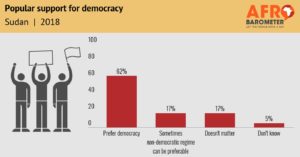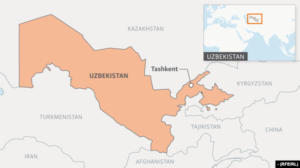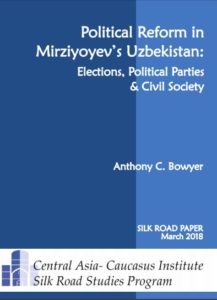 Two countries became notably less despotic in 2019. In Sudan mass protests led to the ejection of Omar al-Bashir, one of the world’s vilest tyrants. However, the risk that thugs from the old regime may scupper democratic reforms is still worryingly high, The Economist observes.
Two countries became notably less despotic in 2019. In Sudan mass protests led to the ejection of Omar al-Bashir, one of the world’s vilest tyrants. However, the risk that thugs from the old regime may scupper democratic reforms is still worryingly high, The Economist observes.
The paper’s “country of the year” award celebrates improvement – the places that climb furthest are often those that started near the bottom: poor, ill-governed and unstable, it adds. So this year’s winner is …
 Three years ago Uzbekistan was an old-fashioned post-Soviet dictatorship, a closed society run with exceptional brutality and incompetence. Its regime allegedly boiled dissidents alive, and certainly forced legions of men, women and children to toil in the cotton fields at harvest time, The Economist discloses:
Three years ago Uzbekistan was an old-fashioned post-Soviet dictatorship, a closed society run with exceptional brutality and incompetence. Its regime allegedly boiled dissidents alive, and certainly forced legions of men, women and children to toil in the cotton fields at harvest time, The Economist discloses:
Uzbekistan is to hold parliamentary elections before the new year (see article). Although it is far from a democracy—all of the parties support President Shavkat Mirziyoev and some critics remain behind bars—some of the candidates have offered mild criticisms of the government, which would previously have been unthinkable. Ordinary Uzbeks, too, feel free to lampoon the campaign and grumble about the political class, without fear of being dragged off in the middle of the night. Uzbekistan still has a long way to go, but no other country travelled as far in 2019.
 But in many ways, Uzbekistan’s upcoming parliamentary elections look like they will be very similar to the previous elections, says analyst Bruce Pannier, who writes the Qishloq Ovozi blog and appears regularly on the Majlis podcast for RFE/RL. It remains quite difficult to distinguish one party from another. And, once again, no genuine opposition parties are registered to compete, he notes for RFE/RL:
But in many ways, Uzbekistan’s upcoming parliamentary elections look like they will be very similar to the previous elections, says analyst Bruce Pannier, who writes the Qishloq Ovozi blog and appears regularly on the Majlis podcast for RFE/RL. It remains quite difficult to distinguish one party from another. And, once again, no genuine opposition parties are registered to compete, he notes for RFE/RL:
There are again five parties running after the Ecological Movement of Uzbekistan (OEH) attained party status in January 2019. The new environmental party has already caused some controversy. In May, several “members” in Ferghana Province claimed they were forced to join the OEH.
And on November 23, during a “debate” of the five political parties that looked more like a lovefest, a member of the OEH came out in favor of plans to build a nuclear power plant in Uzbekistan. (President Mirziyoev has been actively promoting construction of the plant.) According to some, that made Uzbekistan’s Ecological Movement of Uzbekistan the only “green” party in the world to support nuclear power.
Uzbek civil society groups supported by the National Endowment for Democracy strengthen the capacity of human rights and civic activists, promote access to information and advocate for freedom of association and other core labor rights.







